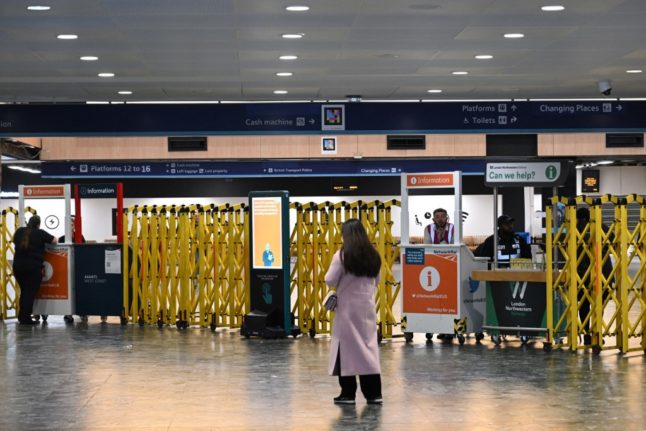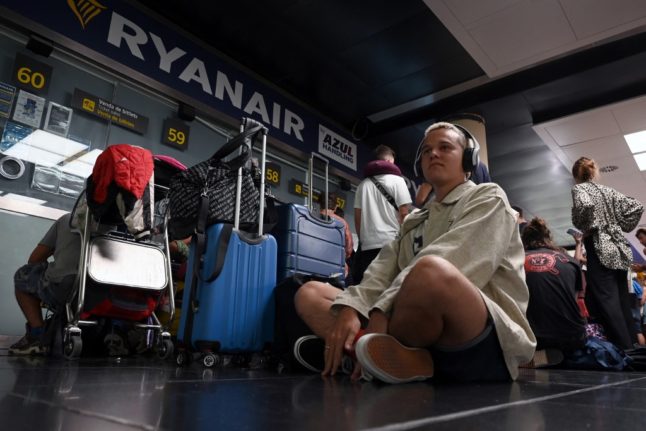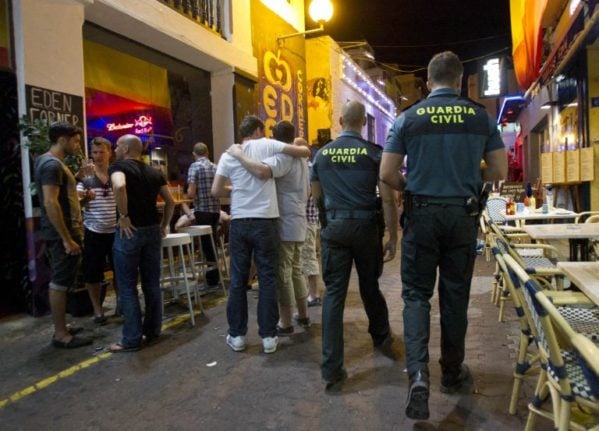Planes, trains, ferries and even roads look set to be affected by UK strike action this Christmas. This comes in the context of widespread industrial action from nurses to postal workers, train drivers to border guards, all of whom are striking to win pay rises above the rate of inflation that will help them cope with the spiralling cost of living.
In Spain, a leading trade union had called on 10,000 workers at airports across the country to also strike on key dates over the Christmas period, but fortunately this industrial action was called off on Wednesday December 14th.
And in France, rail workers are also planning strike action over the festive period, although pay negotiations are still ongoing so stoppages could yet be averted.
All this industrial action is certainly pointing to a winter of discontent when it comes to travel between Spain and the UK, even if it’s not by plane and via France.
Flights between Spain and the UK
Border guards belonging to the UK’s Public and Commercial Services union have called strike action from December 23rd until December 31st, with the exception of December 27th, at Heathrow (Terminals 2,3,4 and 5), Gatwick, Birmingham, Manchester, Glasgow and Cardiff airports.
The strikes will affect passport checks for arrivals into Britain, as 75 percent of passport control staff are PCS union members. The main effect will be long waits at passport control (some are predicting up to 10 hours) but there may also be flight cancellations as passengers may have to wait before disembarking their plane – something that will affect other incoming flights.
Anyone with a pre-booked ticket will be contacted by their airline if their flight is cancelled, but travellers should allow plenty of time to clear passport control. The UK government is talking about using the army to fill in for striking workers, but this will still be a much-reduced service.
READ MORE: UK border control strikes threaten Christmas travel chaos to and from Spain
In Spain, cabin crew belonging to low-cost airlines Vueling and Ryanair are also continuing to take part in strike days throughout December as they have done for several months, although airline representatives maintain this is having little impact on their flight schedules.
Pilots working for Spanish airline Air Nostrum, which operates mainly domestic flights within Spain, have also announced they will strike.
As mentioned earlier, up to 10,000 workers belonging to Spain’s airport operator Aena had been called to join a strike by the trade union representing them, but this has since been called off.

Domestic travel disruptions in the UK and Spain
There are currently no bus or rail strikes scheduled to take place in Spain over the Christmas period, but it’s a very different story in the United Kingdom.
The biggest impact is likely to be on the railways, National Rail Enquiries says: “Due to various industrial action, there will be reduced train services across the rail network from Tuesday, December 13th 2022 until Sunday, January 8th 2023. Significant disruption is expected across the rail network. Trains will be busier and likely to start later and finish earlier, and there will be no services at all in some places.”
The RMT union is taking strike action on December 13th, 14th, 16th, 17th, 24th, 25th, 26th and 27th.
Outside of strike days, union members are also refusing to do any overtime outside of their contracted work hours – and it is estimated that this will see around 20 percent of services cancelled. A full strike timetable is not yet available, but it seems that the disruption will be concentrated on local services, rather than intercity routes.
Travel by road could also be disrupted over the holidays because of a strike by National Highways control room staff. These workers have a largely unseen but important role – including monitoring CCTV, programming motorway matrix boards and co-ordinating with emergency services. It essentially means that work to mitigate the effects of crashes, breakdowns or bottlenecks will happen more slowly, leading to unusually long traffic jams on motorways and A roads.
These strikes are on a regional basis – December 16th and 17th in the north-west, north-east, Yorkshire and Humber and the north-east regions, December 22nd, 23rd, 24th and 25th for London and the south-east, December 30th and 31st for the West Midlands and south west and January 6th and 7th for the east Midlands and eastern England.
All National Highways workplaces will take industrial action on January 3rd and 4th.
Travel between Spain and the UK via France
As mentioned above, there are also planned strikes in France as well as UK strikes affecting travel to France, meaning that people travelling between Spain and the UK via France have further disruptions to factor in.
Eurostar
UK-based security staff will walk out on December 16th, 18, 22nd and 23rd. Eurostar currently says that it does not expect any impact to its services from this strike.
The UK’s RMT union is also taking strike action between December 24th and 27th – although this doesn’t directly affect Eurostar because their drivers belong to a different union, strikes can see reduced running hours on UK rail lines. The company says it is “currently assessing” the impact of this action, and that passengers with pre-booked trains will be contacted directly.
However, some Eurostar passengers have reported not getting updates about earlier cancellations, so it would be a good idea to keep an eye on the Eurostar website for any timetable changes.
Ferries
The UK border guards strike will also affect the ferry port of Newhaven, so there could also be delays for passengers on the Dieppe-Newhaven route, but cancellations are a lot less likely due to significantly lower volume of traffic through Newhaven.
The PCS strike does not at present include staff at Dover, Folkestone and crucially Plymouth or Portsmouth, where ferries from the UK to Spain leave from.
Channel Tunnel
The border guards strike does not include staff at Folkestone, and train drivers on the Channel Tunnel train drivers do not belong to the RMT, so as things stand Channel Tunnel services will be running as normal. They are, however, expected to be extremely busy as travellers change their plans to avoid flying. There are also possible road disruptions in the UK.
Domestic strikes in France
French rail workers are also planning strike action over the festive period, although pay negotiations are still ongoing so industrial action could yet be averted.
There were no direct trains between Spain and France from December 2nd to 12th as a result of industrial action, coinciding with Renfe and SNCF ending their partnership. As things stand, the French public rail provider will only operate its Barcelona-Paris route over Christmas, as the previous trains between Spain and Lyon and Marseille are temporarily suspended.
French rail signal operators are now planning to strike from December 15th to 19th, after “insufficient” proposals from SNCF management during pay negotiations. So far, only the Sud-Rail union has called on workers nationwide to strike, though the CGT union has supported local actions. This likely means that disruption will be less severe, but detailed strike timetables will be available 24 hours in advance.
Train services in France could also be impacted by industrial action over the Christmas (December 23rd to 26th) and New Year (December 30th to January 2nd) weekends, with unions representing conductors and ticket collectors threatening to strike during those days. Previous strikes in December by conductors and ticket collectors were highly disruptive, causing 60 percent of high-speed and intercity trains to be cancelled during the first day of a three-day strike. Negotiations are still ongoing, so at present these are only provisional strike notices.
You can keep up to date with all the latest French strike news HERE.



 Please whitelist us to continue reading.
Please whitelist us to continue reading.
Member comments